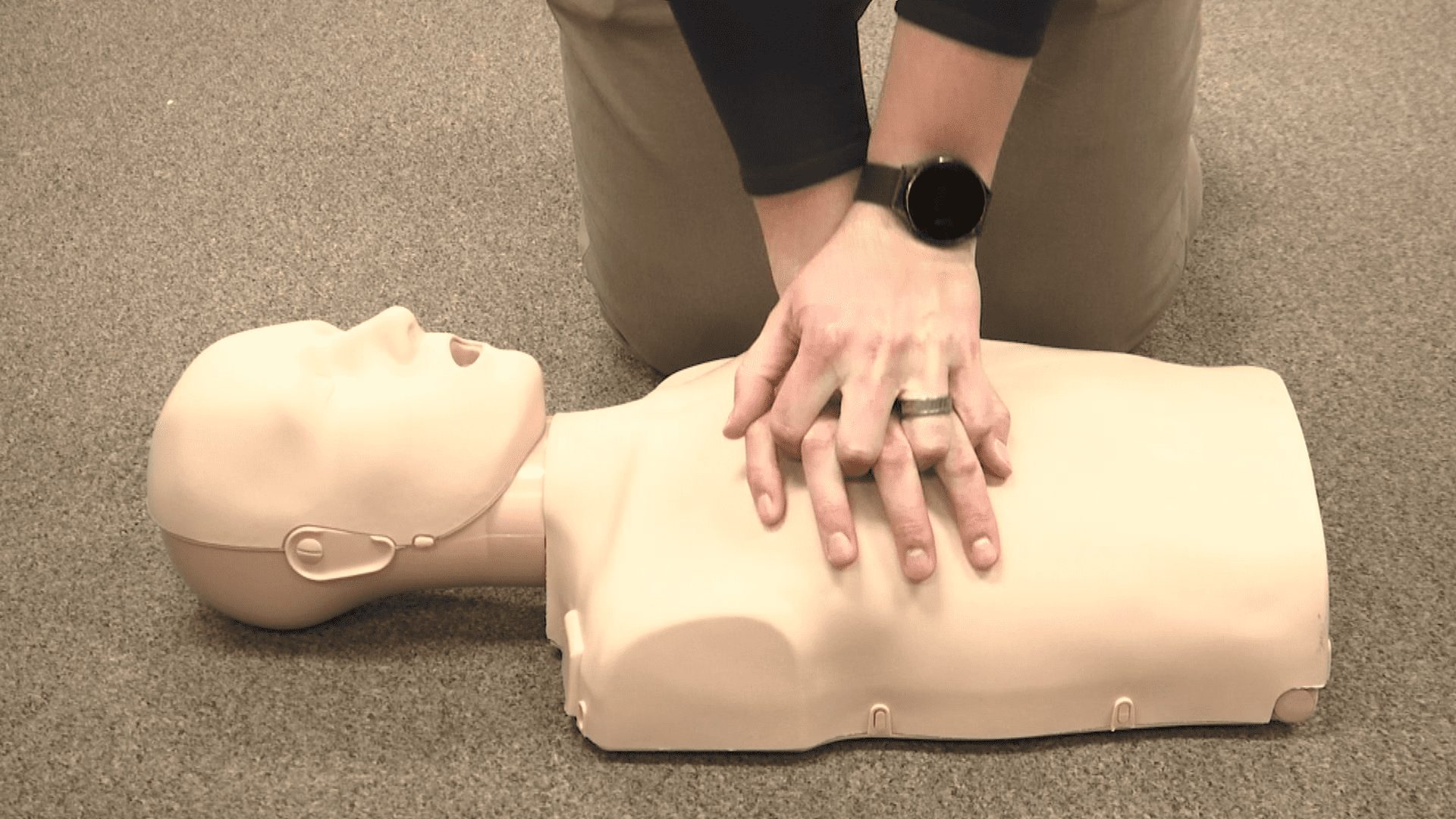The importance of knowing CPR

CPR saves thousands of lives each year.
According to the American Health Association, 350,000 Americans die from cardiac arrest each year. Although deadly in most cases, CPR has been proven to double or even triple the chance of survival if performed within minutes.
UWS Head Athletic Trainer Ben Kasper teaches CPR to coaches and other faculty members.
“If anything goes wrong in that sense, we’re here to help save somebody’s life,” said Kasper. The importance of CPR, I can’t stress it enough. It is something that when that happens, you need to be ready and prepared.”
Seven in ten cardiac arrests happen at home. 10,000 a year happen in a workplace.
“CPR isn’t just for trained medical professionals. It’s for anybody that might know somebody that they’re at home or, you know, things can happen whenever it’s not always it’s not an athletic treatment,” explained Kasper. “Being prepared and having that skill and the knowledge to do it can be very important.”
The more people trained in CPR, the better.
“The biggest surprise everyone has is how hard it is, how challenging it is. A couple of rounds of CPR can take about 2 minutes, and that can be enough to really tire you out,” Kasper explained. “So if you have multiple people who are trained and certified, it’s easy to rotate through.”
Although you can learn CPR in a one-time class through AHA or the American Red Cross, a refresher is important if it’s been a while.
The certifications expire after every two years,” said Kasper. “More of the research says every six months, people need a refresher.”
CPR is only provided in around 46% of cardiac arrests that occur outside of a hospital, an amount that can be increased with more awareness and certifications.
“It’s something that everybody can learn. If you don’t have a certification, I would say go out and learn it,” said Kasper.